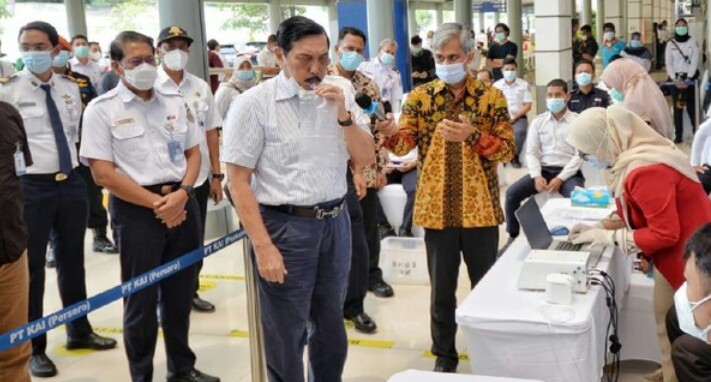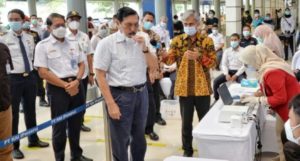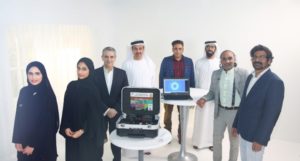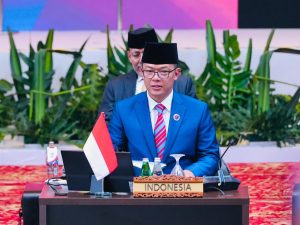Jakarta, MINA – The Indonesian government will use a Covid-19 detection tool via exhalation, GeNose, at tourism sectors.
GeNose is an innovation to detect Covid-19 through the first breath in Indonesia developed by a research team at the University of Gadjah Mada (UGM) and has obtained a distribution permit from the Ministry of Health on December 24, 2020.
Indonesian Minister of Research and Technology Bambang Brodjonegoro said that later every visitor and employee in the tourism sector will be tested using GeNose before entering the area of hotels, restaurants, tourist attractions, and others, as quoted from Anadolu Agency on Saturday.
According to him, the method is expected to increase public confidence in returning to tourism after this sector has been hit by the pandemic.
Foreign tourist visits to Indonesia decreased by 74.67 percent in 2020 compared to 2019, while the number of domestic tourists also decreased by 29.7 percent.
“Screening (using GeNose) aims to prevent positive people from being in tourist attractions, so that slowly the trust will start to emerge and tourism will start again,” Bambang said in a virtual press conference on Friday.
A number of travel agency associations, hotels, restaurants and tourist attractions have agreed to take advantage of GeNose.
According to Bambang, GeNose is more accurate as a screening tool in public areas than measuring body temperature.
Also Read: Indonesia’s Hajj Ministry Engages Local MSMEs to Strengthen Catering for 2026 Pilgrims
The tool is claimed to have the sensitivity to read positive signs of Covid-19 up to 92 percent, then the specificity to read negative signs up to 94 percent.
GeNose is also claimed to be cheaper than screening using the antigen rapid test, and it takes less than 5 minutes to find out the results.
The tool works by detecting Volatile Organic Compound (VOC) which is formed due to Covid-19 infection through exhalation into a special bag.
The pattern of the VOC is then identified through sensors whose data is processed with the help of artificial intelligence.
Also Read: Indonesia Denies Being Destination for Forced Relocation of Gaza Residents
The results of GeNose can be found through applications that use a cloud computing system so that the diagnosis results are obtained in real time.
Meanwhile, epidemiologist from Griffith University Dicky Budiman assessed that the use of GeNose as a screening tool in public spaces is inappropriate and tends to be mistaken.
The artificial intelligence built into GeNose has so far only been tested on nasopharyngeal samples from people in hospitals, not the general population.
Meanwhile, a device with a similar exhalation method in the Netherlands was found to be sensitive to pungent odors such as cigarettes and alcohol, thus affecting the results.
Also Read: Indonesian Humanitarian Alliance Urges President Prabowo to Take Role in Sudan Crisis
The Netherlands has even stopped testing with this method because it resulted in a number of false negative cases.
According to Dicky, a similar situation can also occur with GeNose if it is used in the general population before being tested.
“It is dangerous if it is used as a screening tool in the midst of an uncontrolled pandemic situation in Indonesia, especially at tourist sites and public transportation,” he said. (T/RE1)
Mi’raj News Agency (MINA)
Also Read: Indonesia Welcomes UN Security Council Resolution on Gaza



































 Mina Indonesia
Mina Indonesia Mina Arabic
Mina Arabic